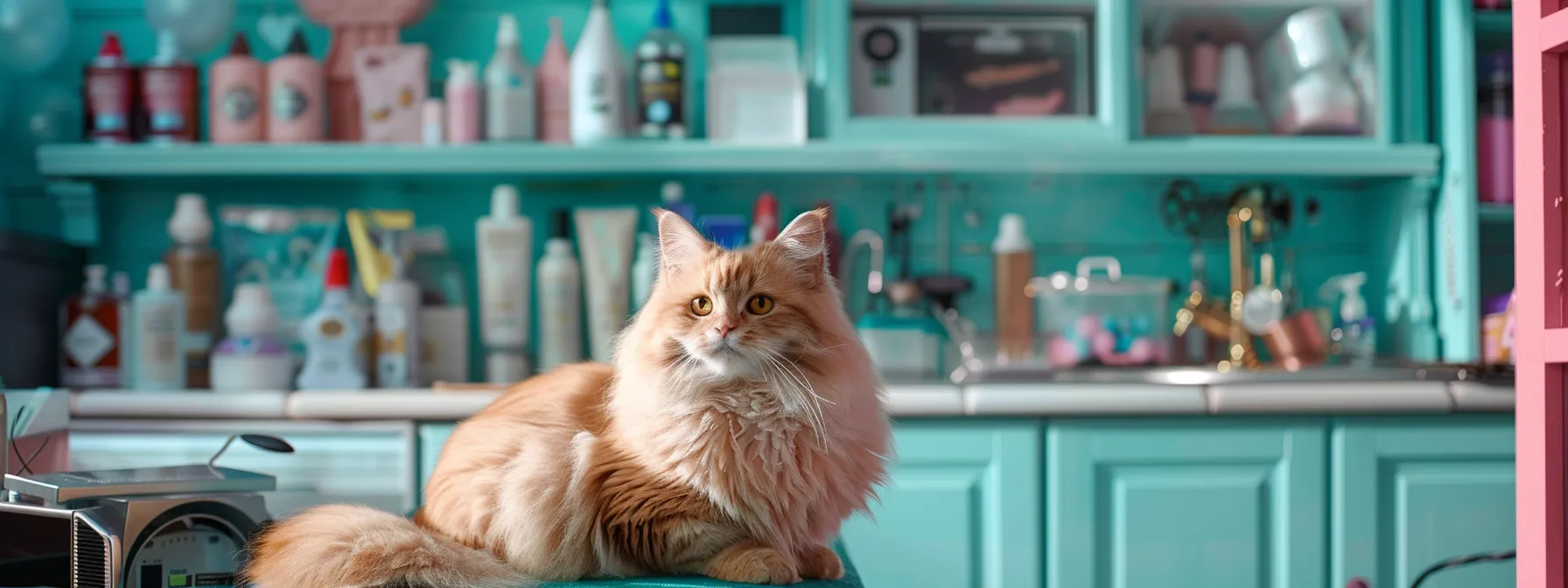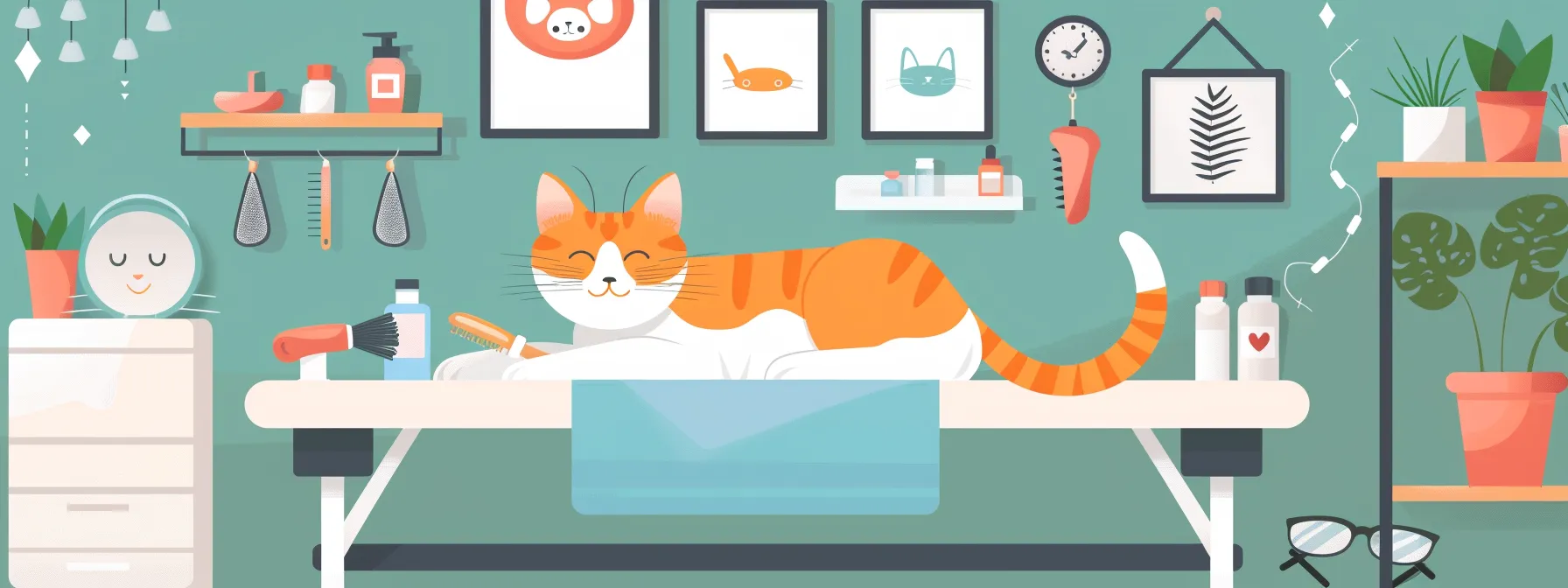
Table Of Contents:
- Cat Grooming Techniques Every Beginner Should Know
- Key Takeaways
- Understanding the Importance of Cat Grooming Techniques for Beginners
- Essential Supplies for Cat Grooming
- Step-by-Step Cat Grooming Techniques
- Tips for Managing Cat Grooming Anxiety
- Common Grooming Mistakes to Avoid
- Additional Resources for Cat Grooming Techniques
- Conclusion
Cat Grooming Techniques Every Beginner Should Know
Are you struggling to keep your cat looking neat and healthy? Many cat owners feel overwhelmed by grooming, but it’s easier than you think. In this guide, we will cover essential supplies for cat grooming, step-by-step techniques to make it simple, and tips for managing any anxiety your cat may feel during the process. By following these practices, you’ll enhance your cat’s coat and well-being, making grooming a more enjoyable experience for both of you. Let’s get started on making grooming a regular part of your cat care routine.
123 Key Takeaways 456
- Regular grooming promotes your cat’s health and strengthens the bond between you and your pet
- Using appropriate grooming tools ensures comfort and reduces the risk of skin irritation
- A calming environment helps manage your cat’s anxiety during grooming sessions
- Establishing a consistent grooming routine can prevent matting, skin issues, and excess shedding
- Positive reinforcement encourages good behavior and makes grooming more enjoyable for your cat
Understanding the Importance of Cat Grooming Techniques for Beginners

Grooming your cat is essential for maintaining their health and well-being. Regular grooming helps reduce the risk of skin issues and promotes a strong immune system. By keeping your pet clean, you can also alleviate any pain that may arise from matted fur or dirt buildup that can cause injury.
In today’s society, pet owners are increasingly aware of the importance of hygiene and care for their animals. Using appropriate soap during grooming can help remove dirt and allergens, ensuring a healthier environment for your cat. This regular practice not only enhances the relationship between you and your pet but also contributes to their overall happiness and claw.
Moreover, understanding grooming techniques can be beneficial for those considering pet insurance. Regular grooming often leads to fewer health problems, which may lower veterinary costs in the long run. By being proactive with your cat’s grooming needs, you can help ensure their longevity and quality of life:
| Grooming Benefits | Impact on Health | Cost Implications |
|---|---|---|
| Promotes a clean coat | Strengthens immune system | May reduce vet visits |
| Reduces shedding | Minimizes pain from mats | Potentially lowers insurance costs |
| Enhances bond with owner | Prevents skin issues | Improves overall pet health |
Essential Supplies for Cat Grooming

To ensure effective grooming for your cat, it’s vital to gather the right supplies. You’ll need brushes tailored to different coat types to tackle shedding and mats effectively. Selecting appropriate nail trimmers will help maintain your cat’s claws without causing stress. Additionally, using suitable shampoos and conditioners helps combat odor and skin issues, while dental care tools fight illness. Lastly, ensure you have ear and eye cleaning supplies to keep your cat comfortable and healthy.
Choosing the Right Brushes for Different Coat Types
Choosing the right comb for your cat’s coat type is crucial for effective grooming and maintaining their health. For instance, long-haired breeds may require a wide-toothed comb to prevent hair loss and mats, while short-haired cats might benefit from a bristle brush that minimizes stress during grooming. Selecting the appropriate tool not only reduces the risk of skin irritation, which can lead to conditions such as rash, but also helps to manage saliva buildup that can cause dental issues by keeping their teeth clean and healthy.
Selecting the Best Nail Trimmers for Cats
Selecting the best nail trimmers for your cat involves considering their comfort and safety. Look for trimmers that are designed specifically for feline nails to minimize irritation during the process. Ensure the trimmers are sharp and easy to use, allowing you to handle nail trimming with ease, which can reduce the chance of hairball formation by keeping your cat active and engaged throughout the grooming routine:
| Key Features of Nail Trimmers | Benefits |
|---|---|
| Sharp Blades | Ensures clean cuts and minimizes stress for your cat |
| Comfortable Grip | Provides better control and prevents slipping |
| Safety Guard | Reduces the risk of cutting too close to the quick |
Finding Cat Shampoos and Conditioners That Work
When selecting effective cat shampoos and conditioners, consider products recommended by organizations like the RSPCA, as they ensure safety and quality. Look for gentle, fragrance-free options that won’t irritate your cat’s skin, and always test a small area first. After bathing, use a cotton swab to clean sensitive areas like ears, and ensure your cat is thoroughly dried with a soft towel or hair dryer set on low to prevent knots from forming in their fur.
Dental Care Tools for Cats
Dental care tools for cats are essential for maintaining their oral hygiene and preventing issues like bad breath or allergies. Invest in a toothbrush specifically designed for felines, and pair it with veterinary-approved toothpaste that is safe for cats. Regularly brushing your cat’s mouth not only keeps their teeth clean but also enhances their overall health, making them feel more comfortable and happy.
Proper Ear and Eye Cleaning Supplies
Having the right supplies for ear and eye cleaning is vital for your cat’s grooming routine. Use cotton balls or pads along with a gentle, vet-recommended cleaner specifically designed for pets to maintain hygiene around their ears and eyes. This not only aids in preventing issues like infections or tooth loss but also ensures your cat’s fur remains clean and free from irritants, contributing to their overall animal welfare.
| Cleaning Supplies | Purpose |
|---|---|
| Cotton Balls | Ideal for gentle cleaning without irritation |
| Vet-Recommended Cleaner | Safely removes dirt and prevents infections |
| Soft Cloths | Helps wipe away discharge from eyes |
Step-by-Step Cat Grooming Techniques

Begin by preparing your cat for the grooming session, ensuring they feel comfortable and relaxed. Next, learn proper brushing techniques for various coat lengths, which keeps their fur untangled and reduces itchiness. Nail trimming essentials will be covered, helping you handle scissors safely. You’ll also discover how to bathe your cat effectively and clean their ears and eyes with care, while promoting their dental health.
Preparing Your Cat for Grooming Sessions

Before you start grooming your cat, it’s essential to create a calm environment and make them feel secure. Begin by gently stroking your cat’s neck to help relax them, as this can reduce anxiety during the grooming process. Gather your supplies, including a brush and a nail clipper, to ensure you’re prepared; having these tools ready makes the session smoother and more efficient:
| Preparation Steps | Description |
|---|---|
| Calm the Environment | Choose a quiet space free of distractions. |
| Gently Stroke the Neck | Help your cat relax and reduce stress. |
| Gather Supplies | Have a brush, nail clipper, and treats within reach. |
Proper Brushing Techniques for Various Coat Lengths
When it comes to grooming your cat, using the right brushing techniques for their coat length is vital for their health. For long-haired cats, use a wide-toothed comb to gently remove tangles and mats, taking your time to prevent any discomfort or injury. Short-haired cats benefit from a soft-bristle brush to remove loose fur and debris, while also paying attention to the area around their ears for earwax buildup that could lead to infections if neglected:
| Coat Length | Recommended Brush | Grooming Tips |
|---|---|---|
| Long Hair | Wide-toothed comb | Comb slowly to avoid pulling fur and causing pain. |
| Short Hair | Soft-bristle brush | Brush in the direction of hair growth to reduce shedding. |
Nail Trimming Essentials for Beginners
Nail trimming is a vital aspect of cat grooming that can prevent injuries and promote overall health. When you regularly trim your cat’s nails, you reduce the risk of ingrown nails and injuries to gums while also keeping your furniture safe from scratches. Utilize a sharp nail trimmer designed specifically for felines, and consider rewarding your cat post-trim to ease any anxiety they may have about the process. This proactive approach not only encourages a positive grooming experience but also supports their dental health by minimizing dental issues like gingivitis that can arise from untrimmed nails causing discomfort.
Bathing Your Cat Safely and Effectively
Bathing your cat can be a smooth process when done correctly. First, ensure you have a gentle shampoo designed for cats, as human products can cause skin inflammation. Use a comb to remove debris before bathing, which will help your kitten have a comfortable experience; water alone may not eliminate all dirt. If your cat feels anxious, take breaks during the bath and encourage them by gently stroking their neck, replicating the natural cleaning method they would usually experience with their tongue. Regular baths can help maintain your cat’s coat and overall hygiene while preventing potential skin issues:
| Bathing Steps | Details |
|---|---|
| Prepare Bathing Area | Choose a quiet place free of distractions. |
| Use Cat Shampoo | Opt for a gentle, feline-approved shampoo. |
| Remove Debris | Comb through the fur to prevent tangles and discomfort. |
| Gently Clean | Wash your cat carefully, ensuring a calm approach. |
Cleaning Ears and Eyes With Care
Cleaning your cat’s ears and eyes is a crucial part of their grooming routine. You should use a cotton ball or pad with a gentle, vet-recommended cleaner to wipe away any dirt, debris, or discharge, especially if you notice any feces or residue around these areas. Regular cleaning helps prevent infections and discomfort, keeping your pet happy and healthy; remember that maintaining hygiene also contributes to the overall health of their teeth and can protect the delicate blood vessels in their ears.
| Cleaning Step | Description |
|---|---|
| Gather Supplies | Use cotton balls and a vet-approved cleaner. |
| Examine Ears and Eyes | Check for dirt or discharge. |
| Gently Clean | Wipe in a gentle motion, avoiding excessive pressure. |
Tips for Managing Cat Grooming Anxiety

To manage your cat’s grooming anxiety effectively, start by creating a calm environment that reduces stress during grooming sessions. Employ positive reinforcement to encourage good behavior, and learn to recognize signs of stress in your cat. Incorporating grooming into your cat’s routine can also help, especially during moulting periods when your cat may need extra care. Each of these strategies will enhance the grooming experience for both you and your feline friend.
Creating a Calm Environment for Grooming
Creating a calm environment for grooming is essential to reduce your cat’s anxiety and make the process smoother for both of you. Choose a quiet space free from distractions, where your cat feels safe. Consider using soft lighting and familiar objects, such as their favorite blanket or toys, to help put them at ease and make grooming a more pleasant experience.
Using Positive Reinforcement During Grooming
Using positive reinforcement during grooming can significantly ease your cat’s anxiety and create a more enjoyable experience for both of you. When you reward your cat with treats or praise for good behavior, you help build a positive association with grooming sessions. For instance, if your cat remains calm while you brush their fur, offer a small treat to reinforce that behavior and encourage them to feel more relaxed in the future.
Recognizing Signs of Stress in Your Cat
Recognizing signs of stress in your cat during grooming is crucial for maintaining a positive experience. Look for behaviors such as flattening ears, hissing, or attempting to escape; these indicators suggest your pet is uncomfortable. Addressing these signs promptly can help you adjust your grooming approach, ensuring your cat feels safer and more relaxed during each session.
Incorporating Grooming Into Your Cat’s Routine
Incorporating grooming into your cat’s routine can help ease anxiety and make the process enjoyable for both of you. Start by setting aside short, regular sessions that allow your cat to adjust to grooming gradually. You might consider combining grooming with playtime or treats, turning it into a positive experience that helps your cat associate grooming with comfort and joy:
| Grooming Routine Steps | Description |
|---|---|
| Set a Schedule | Choose specific days or times for grooming to establish consistency. |
| Keep Sessions Short | Start with five to ten-minute sessions to prevent overwhelm. |
| Reward Good Behavior | Use treats or praise to encourage a calm demeanor during grooming. |
Common Grooming Mistakes to Avoid
Avoiding common grooming mistakes is vital for ensuring your cat’s health and comfort. Over-bathing can lead to skin issues, while neglecting regular grooming may contribute to mats and tangles. Ignoring specific coat care needs can result in discomfort, and misusing grooming tools can cause harm. Let’s dive deeper into these important topics for effective cat grooming.
Over-Bathing Your Cat
Over-bathing your cat can lead to dry skin and other skin-related issues, as their natural oils are stripped away with excessive washing. It’s important to establish a grooming routine that includes bathing only as necessary, depending on your cat’s coat type and lifestyle. For many indoor cats, occasional baths may be sufficient, allowing you to maintain proper hygiene without causing discomfort or irritation.
Neglecting Regular Grooming
Neglecting regular grooming can lead to several issues for your cat, including matting, skin irritations, and increased shedding. Over time, unkempt fur can cause discomfort for your pet and even result in health problems like infections. Establishing a consistent grooming routine can help you avoid these complications and keep your cat happy and comfortable:
| Consequences of Neglecting Grooming | Impact on Your Cat |
|---|---|
| Matting | Can lead to skin irritation and pain. |
| Skin Issues | Increased risk of infections and allergies. |
| Excess Shedding | Creates a mess in your home and can lead to hairballs. |
Ignoring Specific Coat Care Needs
One common mistake you might make as a beginner in cat grooming is ignoring your cat’s specific coat care needs. Each cat has a unique coat type that requires targeted grooming techniques; for instance, long-haired cats often need regular combing to prevent painful mats, whereas short-haired cats typically benefit from a softer brush to maintain their skin’s health. Understanding these differences can help you provide better care for your feline friend and prevent issues like tangles, skin irritation, or discomfort: cat grooming
| Coat Type | Grooming Needs | Potential Issues if Ignored |
|---|---|---|
| Long Hair | Regular combing to prevent matting | Pain from tangled fur and skin irritation |
| Short Hair | Occasional brushing to reduce shedding | Increased shedding and hairballs |
| Curly Hair | Specialized combs to manage curls | Skin infections caused by mats |
Misusing Grooming Tools
Misusing grooming tools can lead to discomfort and stress for your cat, ultimately affecting their health. For example, using the wrong type of brush can create irritation or fail to remove loose fur effectively, resulting in matting and skin issues. Always ensure you’re using tools designed for your cat’s specific coat type to enhance their grooming experience and maintain their well-being:
| Common Tool Mistakes | Impact on Your Cat |
|---|---|
| Using a dog brush | May irritate the skin and cause pain. |
| Using dull nail clippers | Risk of splitting or cracking the nail. |
| Neglecting to clean brushes | Transfers dirt and allergens back to the cat. |
Additional Resources for Cat Grooming Techniques
To enhance your cat grooming skills, consider utilizing online tutorials specifically designed for beginners. Recommended books can further deepen your understanding of effective techniques. Joining cat grooming communities offers valuable support and shared experiences. Additionally, consulting professional grooming services can provide expert insights and advice tailored to your pet’s needs. Each of these resources will significantly aid in your grooming journey.
Online Tutorials for Beginners
Online tutorials are a valuable resource for beginners looking to master cat grooming techniques. These videos often provide step-by-step demonstrations, making it easier for you to understand proper techniques—whether it’s brushing, bathing, or nail trimming. By following along, you can gain confidence and learn tips from experienced groomers that can directly improve your grooming sessions and enhance the bond with your pet.
Recommended Books on Cat Grooming
Reading recommended books on cat grooming is an excellent way to enhance your skills and understanding of effective techniques. Look for titles that cover various grooming methods, tailored to different coat types, to ensure you grasp the essentials needed for your cat’s specific needs. These resources often provide practical insights, tips for common challenges, and step-by-step guides that help you develop confidence in maintaining your cat’s health and well-being through proper grooming practices.
Joining Cat Grooming Communities for Support
Joining cat grooming communities can offer significant support as you embark on your grooming journey. These groups often provide a wealth of knowledge from experienced cat owners and groomers, who share valuable tips and techniques tailored to various coat types and grooming challenges. Engaging with fellow members allows you to ask questions, gain insights, and learn from others’ experiences, helping you feel more confident in managing your pet’s grooming needs effectively.
Professional Grooming Services for Consultation
Consulting professional grooming services can provide valuable insights and techniques tailored to your cat’s specific needs. These experts not only possess the skills to handle various coat types but can also offer advice on maintaining your pet’s hygiene at home. By observing their methods, you can enhance your own grooming skills and ensure a more effective and enjoyable experience for both you and your feline friend.
Conclusion
Mastering cat grooming techniques is essential for any pet owner focused on maintaining their cat’s health and well-being. Regular grooming not only prevents skin issues and discomfort but also strengthens the bond between you and your feline friend. By using the right tools and methods, you can create a positive grooming experience that keeps your cat happy and healthy. Understanding and implementing these fundamental techniques will ensure your cat enjoys a clean, comfortable life while minimizing potential health costs.